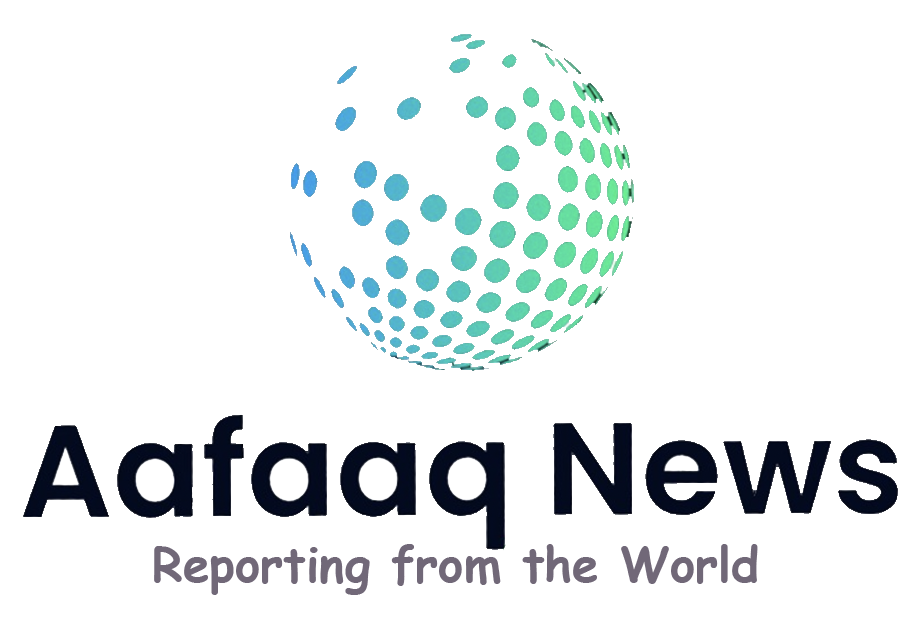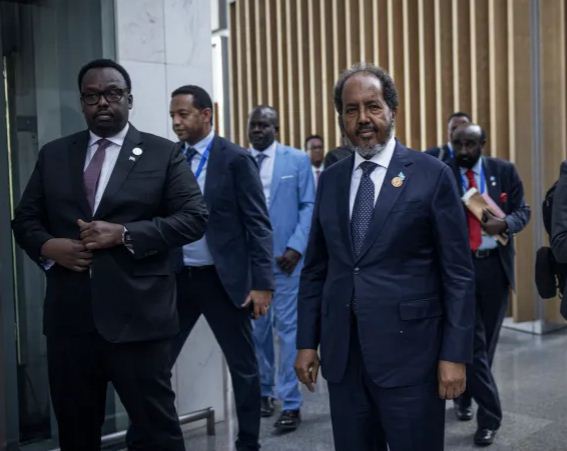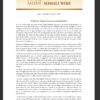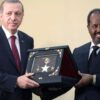In a recent development at the African Union summit held in Addis Ababa, Somalia President Hassan Sheikh Mohamud has levied serious accusations against Ethiopia, alleging an attempt to annex part of Somalia’s territory. The source of contention arises from Ethiopia’s signing of a sea access deal with Somaliland, a self-declared independent region within Somalia’s borders.
The agreement, inked on January 1st between Ethiopian Prime Minister Abiy Ahmed and Somaliland’s leader Muse Bihi Abdi, involves granting Ethiopia a 50-year lease on a naval base with access to Somaliland’s Berbera port for commercial marine operations. Although specific terms of the deal remain undisclosed, it is perceived to grant Ethiopia the right to construct a port in Somaliland in exchange for diplomatic recognition.
President Mohamud vehemently objected to this arrangement, characterizing it as an act of annexation that alters Somalia’s borders. He emphasized Somalia’s firm opposition to what he deemed as an infringement upon its sovereignty. Somalia views any international recognition of Somaliland as a direct assault on its territorial integrity.
Tensions escalated further with Mohamud’s allegations of Ethiopian military presence in Somaliland, purportedly laying the groundwork for annexation. While these claims remain unverified, Somalia has hinted at the possibility of resorting to military action to thwart Ethiopia’s port construction plans in Somaliland.
The situation underscores the complexities surrounding Somalia’s internal dynamics and regional geopolitics. Somaliland has operated autonomously for three decades, yet Somalia maintains its claim over the region and its populace. The Ethiopian-Somaliland deal not only intensifies this longstanding dispute but also draws attention to broader regional power struggles.
Ethiopia, for its part, has downplayed the prospects of armed conflict, with Prime Minister Abiy asserting no intention of engaging in war with Somalia. However, Somalia’s president remains steadfast in his condemnation of Ethiopia’s actions, alleging obstruction and provocation by Ethiopian security forces during his attendance at the AU summit.
The incident has raised concerns regarding the role of regional actors in exacerbating tensions within Somalia and jeopardizing prospects for stability in the Horn of Africa. President Mohamud’s outspoken remarks reflect Somalia’s determination to safeguard its territorial integrity and resist external interference.
As leaders convene at the AU summit to address pressing continental issues, the Ethiopia-Somaliland deal serves as a stark reminder of the intricate political landscape in Africa. With divergent interests at play, finding a peaceful resolution to the Somalia-Ethiopia-Somaliland dispute remains paramount for regional stability and cooperation.
Meanwhile, the presence of Palestinian Prime Minister Mohammad Shtayyeh at the summit underscores broader international concerns, as leaders grapple with issues of conflict and sovereignty beyond the African continent.
The brewing tensions between Somalia and Ethiopia over the Somaliland deal underscore the complexities of regional dynamics and sovereignty disputes. As diplomatic efforts continue, the need for dialogue and mutual respect for territorial integrity becomes increasingly imperative in fostering peace and stability in the Horn of Africa.















